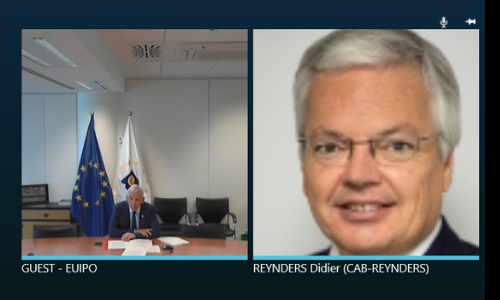The High Representative/Vice-President Josep Borrell visited Libya on Tuesday 1st September for the first time since the beginning of his mandate, continuing EU efforts to advance the political process and resume political dialogue to end the conflict in the country.
He met with President of the Presidency Council and Prime Minister of the Government of National Accord (GNA) Faiez Serraj in Tripoli and with the President of the House of Representatives Aguila Saleh in Al Qubah in eastern Libya.
In his meetings, Josep Borrell reiterated the EU’s support to an inclusive Libyan-led and Libyan-owned political resolution of the Libyan conflict and confirmed that Libya remains on top of the EU’s political agenda. He discussed the latest developments in the country, and conveyed EU’s strong and unwavering commitment to preserve Libya’s territorial integrity, sovereignty and national unity.
The visit of the High Representative took place shortly after the 21 August understanding between President Serraj and Speaker Saleh, which provides for a ceasefire, the return of foreign fighters to be discussed in the next round of 5+5 military talks, modalities for lifting the oil blockade, and the relaunch of the political process leading to an agreed reform and eventual elections.
In his meetings in Tripoli and Al Qubah, the High Representative welcomed the ceasefire understanding and stressed the need for its prompt sustainable implementation. He was encouraged to hear the determination and commitment from his Libyan interlocutors to work in this direction, and to implement these principles in the framework of the UN-led Berlin process. This process is the only international framework that offers a realistic opportunity for the political dialogue needed to bring the Libyan conflict to an end. Discussions focused on the required mediation efforts and de-escalation measures, including the enforcement of the UN arms embargo and EU operation Irini’s role in its implementation.
In the meeting with Prime Minister Serraj and his cabinet members, the High Representative also discussed other issues of common concern, including migration management and the recent public demonstrations.
In Tripoli, Josep Borrell also met with the Chairman of the National Oil Corporation, Mustafa Sanalla to discuss the worrying situation of the oil blockade that urgently requires joint international resolve to prevent a collapse of Libya’s oil sector, which is crucial for Libya’s economy and the prosperity of its people.
During his talks in Al Qubah with Speaker Saleh, the High Representative got additional updates about the situation in eastern Libya and spoke about related prospects for a peaceful resolution of the Libyan conflict.


